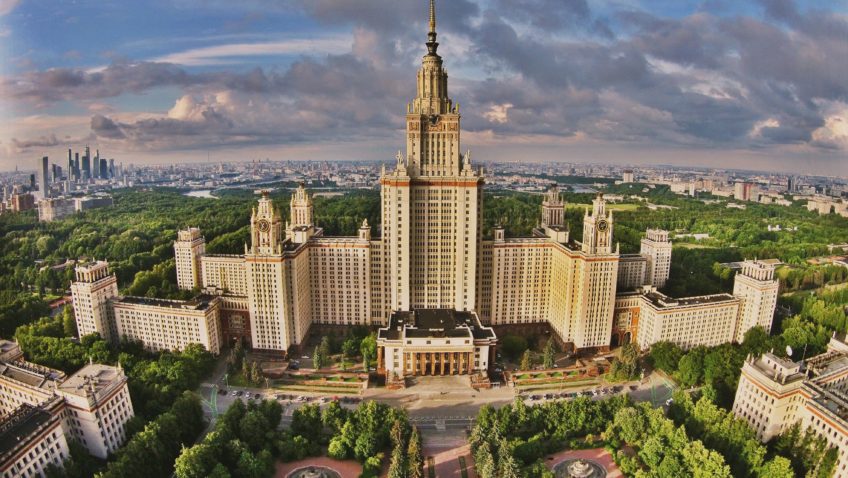The Iron Curtain had just started to crumble when the enlightened (American) West started to bring light to the gloomy and obscure world of socialist higher education. Prague became the center for this Western influence, first in 1990 with the opening of the first Anglo-American University and then in 1995 with the relocation of Radio Free Europe from Munich. Shortly afterward, American universities were opened to students in Armenia, Bulgaria, Hungary, Kyrgyzstan, and a decade later in Kosovo and in Bosnia and Herzegovina.
I wonder, why they left out Slovenia as their potential target. But anyway, now it is most probably too late, as another power came into play. Ridiculously enough, the power these exact universities tried to subordinate with their superior intellectual goals. Even more: it seems that Slovenia is more than happy to please it.
In September 2017, the Republic of Slovenia gave its consent to the co-foundation of a branch of the Lomonosov Moscow State University (MSU) in cooperation with the University of Koper, a state university at the Adriatic coast. To establish the branch, the Slovenian government fulfilled MSU’s condition to finance the branch fully, and gave a start-up capital of 500.000 euros. The branch at the moment offers joint master degrees in Economics, Finance and Political Science, at which the student spends the first year in the Slovenian coastal town and the second year in Moscow.
I should point out that at the same time, the Slovenian government expenditure on higher education, which is still well under the EU average, is not in the pink of health. For instance, the means for young researchers fell for about 50% in the last ten years.
There’s one more factor that points out the financial disadvantages for Slovenia of this decision. In the state, where higher education is generally for free and with plenty of benefits – except in specific circumstances – the master programmes the MSU branch offers are by no means cheap for an average Slovenian as the tuition fees cost a student 7.000 euros per year (a net average monthly salary in Slovenia is at the moment 1.083 euros).
One of the main goals of the new branch is also to educate future businesspeople who would be able to strengthen economic relations between both countries and for Koper to become “a prestigious lobbying centre for European-Russian economic cooperation”. In Slovenian media, you can also read proud statements of the branch being the “westernmost MSU branch” and “the first MSU branch in the EU”. If you believe the articles published in Slovenia’s media space, studying at the branch will bring you immediate employment and a sparkling career.
But nobody really asks him or herself why was MSU so glad to come to our tiny country, just a few kilometres from the Schengen border. If the reason were only Slavic or historical ties, as the founders of the branch point out in some statements, they had a wide selection of countries to choose from. For Slovenia, it obviously even does not matter in which countries is Russia aiming to keep and spread its sphere of influence with the help of various MSU branches. You find them in Kazakhstan, Azerbaijan, Armenia, to mention only some; soon you will be able to study in MSU branches in China and Iran. In short, countries Slovenia usually does not want to compare with as we usually identify ourselves with (Western) European values and history, proving that with a membership in the EU. We are even a member of NATO and thus bounding ourselves to safeguard this exact values. Although Russian is taught in secondary schools and it is slowly gaining popularity, it is still far less popular than learning German, French or Spanish. We prefer comparing us with Germany, Austria, even in such things such as waste management. And, last but not least, although the Slovenian dreams of becoming a »second Switzerland« are gradually vanishing, are still present in the public discourse.
Instead, when reading Slovenian media you get the sensation that we are pretty proud to have the first MSU branch in the EU, bringing light and progress to other developed countries in Western Europe.
On the map, it looks more like the Russian MSU tried to squeeze itself to the EU through the only crevice left. If that was the goal, they definitely succeeded.


0 comments